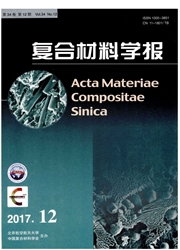

 中文摘要:
中文摘要:
应用于桥梁工程的碳纤维增强复合材料(CFRP)筋通常受循环荷载作用,导致其力学性能的退化,这将影响桥梁结构的受力。为了考察循环荷载作用对CFRP筋力学性能的影响,首先利用静载试验对CFRP筋的初始力学性能进行了检测,然后结合静载试验结果并利用疲劳试验考察了各阶段循环荷载作用对CFRP筋弹性模量、松弛及抗拉强度的影响。研究结果表明,极限拉力作用下CFRP筋的弹性模量较初始状态高约5%,对于CFRP筋构件的变形对结构内力有较大影响的结构,在设计阶段建议适当地考虑CFRP材料的非线性问题;桥梁工程中,经200万次正常使用设计循环荷载作用的CFRP筋,其弹性模量和松弛性能较初始状态未发生明显退化,经应力幅为4.3%的极限抗拉强度的循环荷载作用后,CFRP筋的抗拉强度提高了1.2%,但应力幅提高至7%的极限抗拉强度时,其抗拉强度与初始状态相比无明显变化。
 英文摘要:
英文摘要:
Carbon fiber reinforced polymer (CFRP) tendons applied in the bridge engineering are generally sustained with cyclic load, which may bring degradation of the tendons mechanical properties. The initial mechanical properties of CFRP tendons were tested through static load testing firstly. Then the effect of cyclic load on elastic modulus, relaxation and tensile strength of CFRP tendons under every stage was investigated through fatigue tests. The results show that the elastic modulus of the tendons under ultimate tensile state is about 5 0% higher than initial condition. Therefore, when the deformation of CFRP tendons has a significant impact on internal force of structure, the nonlinear problem of CFRP material is strongly recommended to be considered during structure designing stage. Two million times of normal service cyclic loading has little effect on elastic modulus, relaxation and tensile strength of CFRP tendons. Under the cycle loading with the stress range of 4.3 % of ultimate tensile strength, the tensile strength of CFRP tendons increases by 1.2%. However, when the stress range reaches to 7%, there is no significant change in tensile strength compared with that under the initial condition.
 同期刊论文项目
同期刊论文项目
 同项目期刊论文
同项目期刊论文
 期刊信息
期刊信息
